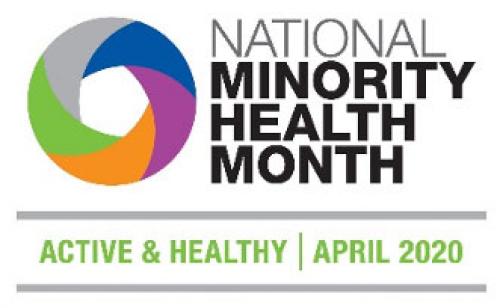Celebrating Diversity in Healthcare
April is National Minority Health Month and the world has become more interdependent as technology makes it easier to interact with people on the opposite side of the world. We learn more about our bodies and how they work every day—we even discover how our genetic differences affect our bodies uniquely, too.
What is minority health?
Minority health relates to the type of diseases, conditions, or illnesses that are associated with a person of a certain minority demographic. Research has shown that dependent on the demographic, certain illnesses or conditions can be developed overtime without proper preventative health care or knowledge of the condition at all.
This minority group could be of…
- Racial
- Ethnic
- Sexual orientation
- Gender
- Socioeconomic class
- Education level
Why are certain minorities at risk for different types of medical conditions?
Due to the intersections of numerous social and financial disadvantages presented by any given minority demographic, some people may not be able to prevent a wide range of diseases or conditions. Even the general public lacks proper resources and information on the issues faced by minority groups everywhere.
What types of conditions do minority groups tend to suffer from?
The intersectionality of a person, or multiple identifications of various demographics, makes the issue of minority health even more complicated.
Here’s a couple examples of that intersectionality of different demographic groups:
- A rural family could be less likely to have access to a healthier food retailer than persons living in urban tracts, leading to issues resulting from poor nutrition.
- A non-Hispanic black racial demographic family could be at a higher risk for developing adult diabetes due to cultural factors and they are often limited to less than healthy food options.
Why is ending health gaps important?
A core principle of public health is that every person should be able to reach his or her full health potential. Medical professionals seek to remove barriers to health linked to race or ethnicity, education, income, location, or other social factors. However, health gaps remain widespread among racial and ethnic minority groups.
- In 2015-2016, Hispanic (47.0%) and non-Hispanic black (46.8%) adults had a higher prevalence of obesity than non-Hispanic white adults (37.9%).
- In 2011-2014, the prevalence of diabetes was 18.0% in non-Hispanic black adults, 16.8% in Hispanic adults, and 9.6% in non-Hispanic white adults.
Where can I learn more about minority health?
To learn more about minority health, visit any of the following websites:
To help determine your health risks, schedule an appointment with one of our Culbertson providers.

